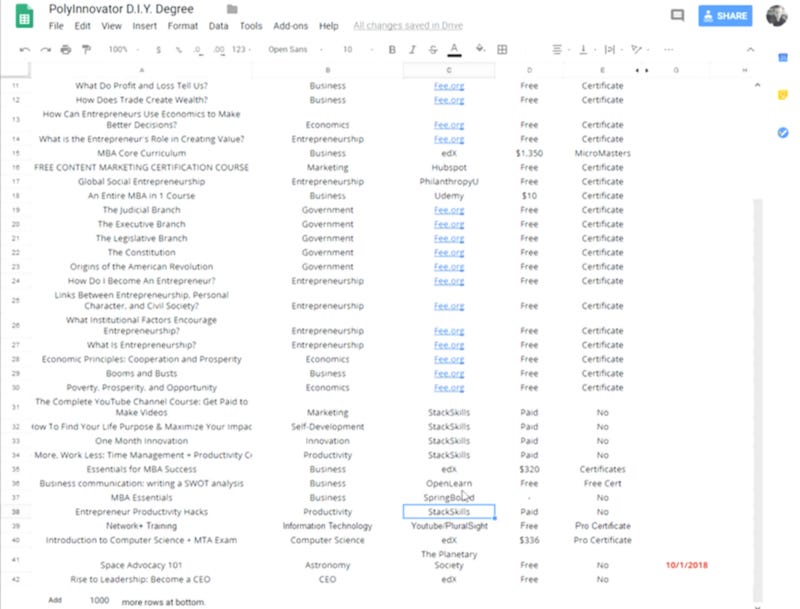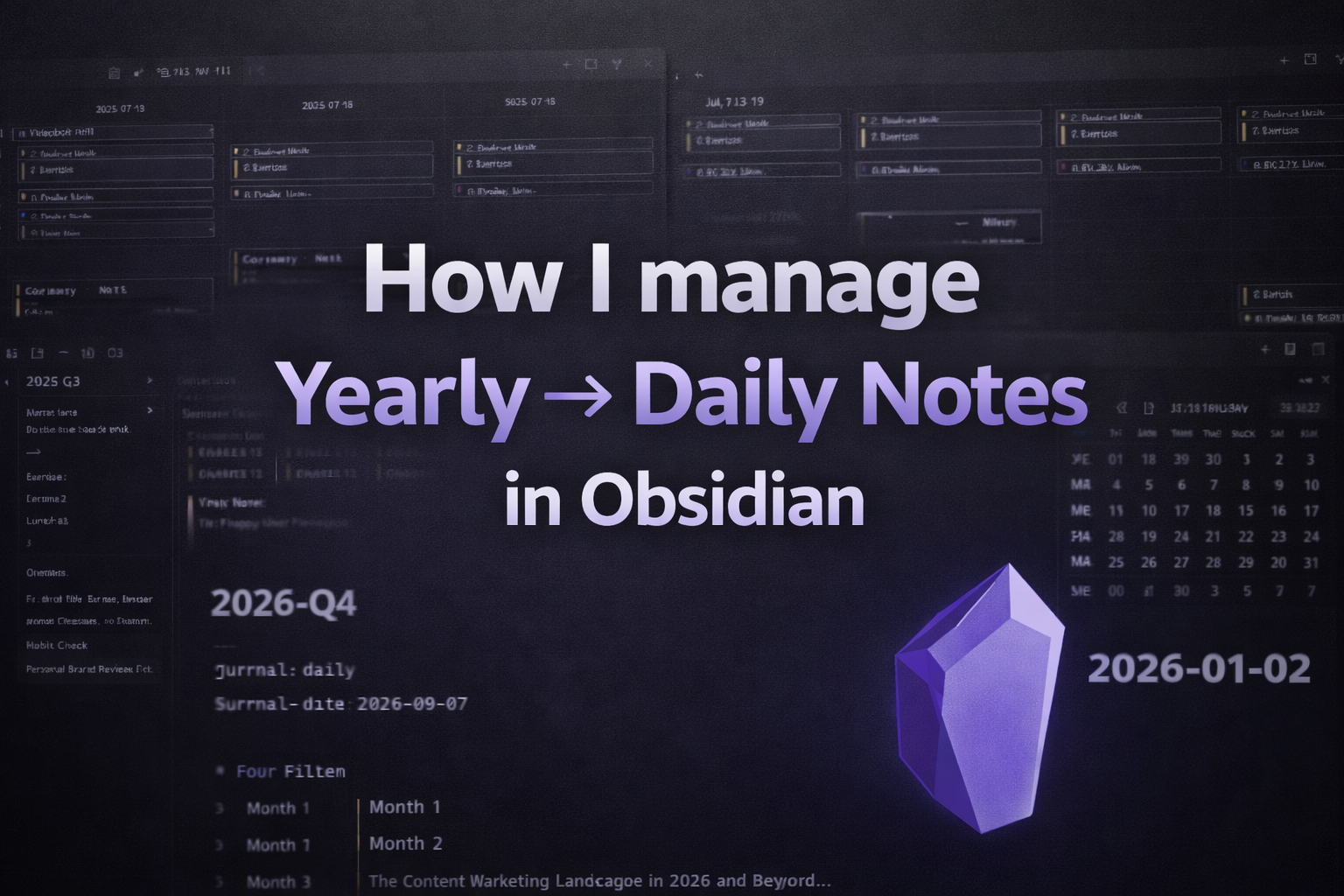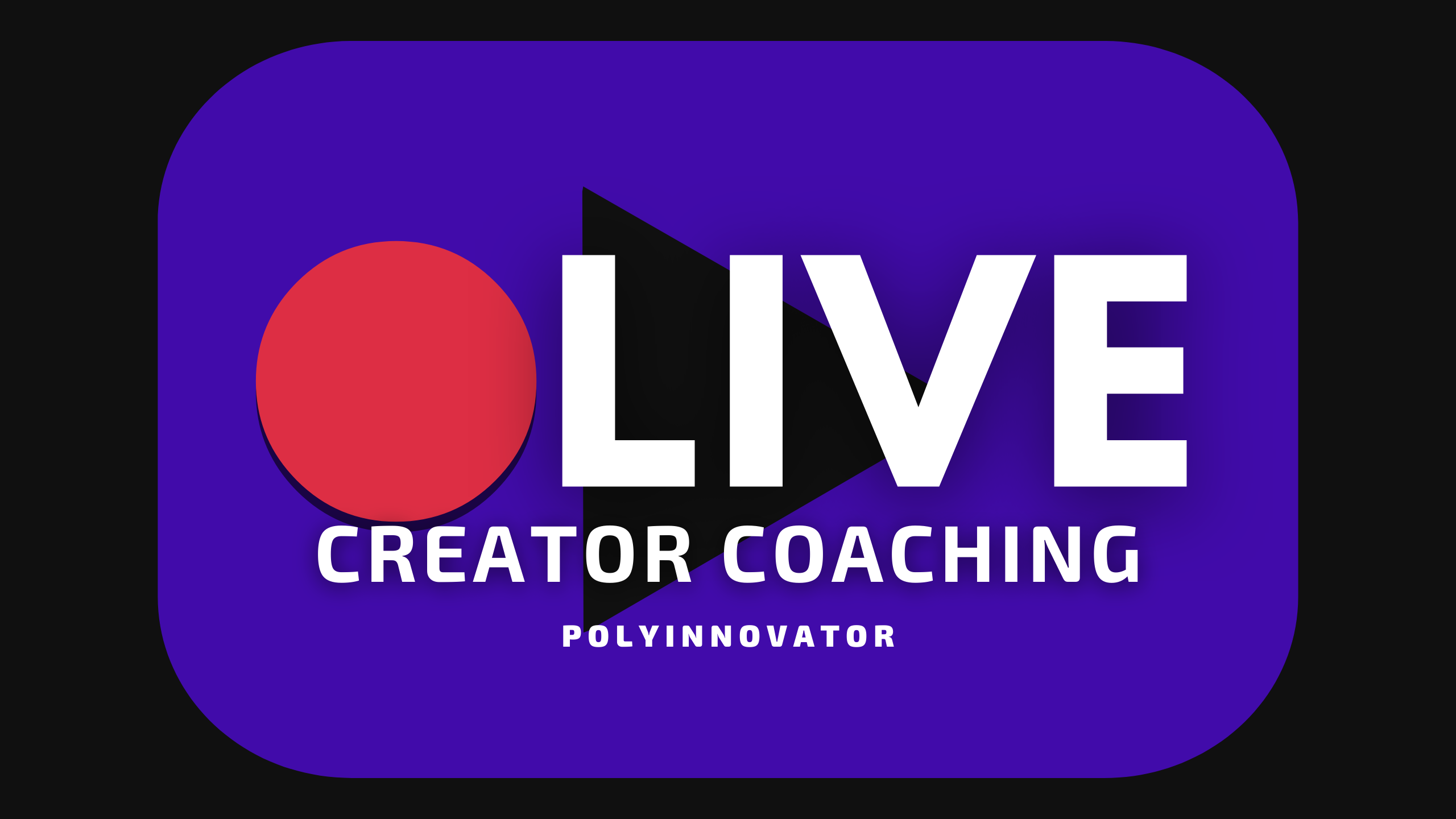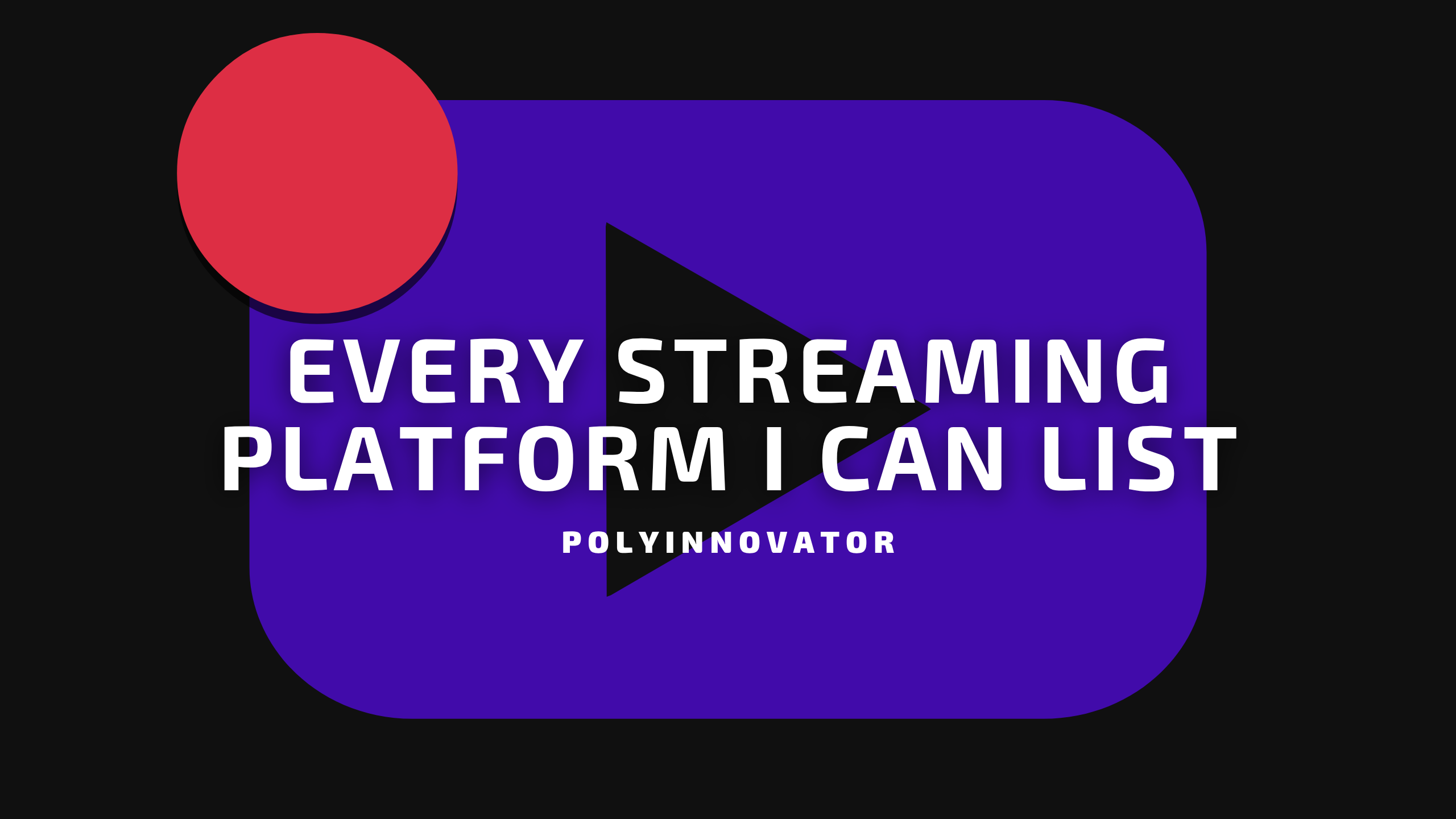YT Thumbnail, https://www.youtube.com/watch?v=vryAzXOIFBo&t=2s
Throughout my journey through my degree I hope to share my progress, as well as the links I have collected. Some of them may be particular to me, in which case I will have to see if I CAN share them, or respectfully ask that you don’t take advantage of it! This is just a precaution just in case.
Anyways to the real meat of the game, of which I hope will help your own endeavors too. I created this list of courses to a monumental 430+ cascade of names, links, and prices (if in pursuit of certificate). Obviously shifting through a list that massive wouldn’t be ideal when trying to find a singular course.
Saying this I decided to organize them into “Semesters”, which I think it should be noted that in about 10 Semesters there are about 40 courses each. In a traditional bachelors degree there are 40 courses in the entire degree. It is almost as if I am taking 10-4 year degrees. Granted some courses are far easier than college, such as if they are only a few hours long, but others are quite literally graduate courses (really a majority of the list). Meaning the work is technically HARDER than a regular schooling experience.
The Challenges Ahead
Don’t let the difficulty ignite fear however because as long as you have the grit and self-discipline I think anyone can do it. Some courses will be shorter than others, and others may take you an entire year. This is just how things are set up for now. The one really important fact I want to convey is that with a “Do it Yourself Degree”, YOU are the one creating and following it. If there is a course you aren’t interested in then don’t take it. Its not like a traditional college experience where you HAVE to take everything.
This is why I think higher education (even primary and secondary schools too) is going in the way of modular education. Meaning you piece together your own pathway. Either through lego-like modules and MOOC’s, or by combining micro-credentials.
I found all of the courses that I felt would aid towards my ideal career, and curated the list of them very carefully. When it came time to organize more, I tried sectioning it off, but that didn’t quite work. I had to completely isolate groups of courses into separate semesters.

Here is a sneak peak of my first semester!
As you can see from this image alone there is a lot going on. From the left we have the name of the course, the subject, the platform, the cost, what sort of credential if at all, the link (hidden), date, and progress. The progress actually has a bit of function to it so if I say started it will be yellow, not started red, skipped blue, and green for completed.
Fee.org has a plethora of online economics and entrepreneurship courses, so that takes up a lot of the space here. I tried to confine myself to purely 40 courses per semester. Though as we go on I may add more, or trim the fat if you will. After FEE there is some courses I had paid for on stacksocial.com, where I take them on stackskills.com.
Some of the main points of interest will actually be the Edx.org courses and “Micro-masters”, which are a semesters worth of graduate school generally speaking. Some of them vary, but most are a decent chunk of school, for a modest price of $1000 or so (some are low as $600, others as high as $1800). Making your masters degree far more accessible, and even some such as a one from MIT. You can use the MM as a pathway to a graduate degree, without having an undergrad. As they simply use the MM as the prior history of ability and education. Following this one last thing to note is that EdX added a dozen or so masters degrees on their platform. Most of which have corresponding Micro-Masters.
My YouTube Video About Semester One
Youtube video of the First Semester!
LINKS
https://courses.philanthropyu.org/courses
https://www.springboard.com/resources/learning-paths/mba
https://courses.planetary.org/p/space-advocacy-101
![Official Website for Dustin Miller PolyInnovator [LLC]](https://polyinnovator.space/content/images/2025/03/polyinnovator-logo-2024.png)











